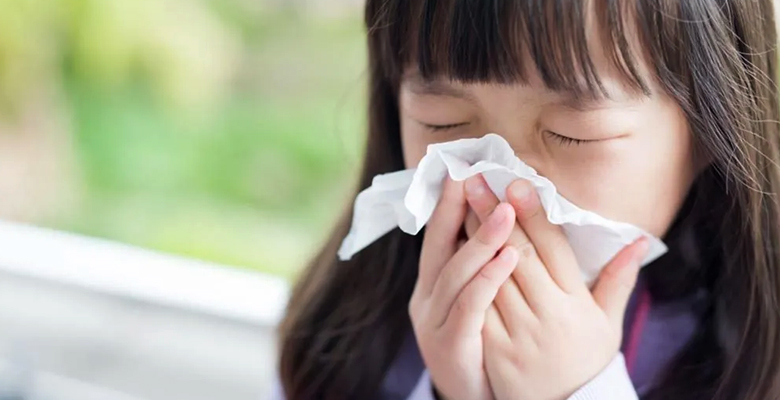Allergies in children are increasingly common and can be triggered by food, environmental factors, or skin contact. These allergies can cause discomfort and sometimes lead to severe reactions, which is why early diagnosis and treatment are important. Dr. Priyanka Sinha specializes in pediatric allergy care, providing accurate diagnosis and tailored treatment plans for children suffering from various allergies.
What are Childhood Allergies?
Childhood allergies occur when a child’s immune system overreacts to normally harmless substances, like pollen, dust, certain foods, or pet dander. The immune system mistakenly identifies these substances as harmful, triggering allergic reactions. Symptoms may vary from mild to severe and can affect different parts of the body, including the skin, respiratory system, and digestive system.
Common Types of Childhood Allergies
- Food Allergies: These occur when the immune system reacts to certain proteins in foods like peanuts, milk, eggs, shellfish, or soy. Symptoms can range from hives to more severe reactions like anaphylaxis.
- Environmental Allergies: Triggered by outdoor elements like pollen, mold, or pollution, or indoor allergens such as dust mites, pet dander, and cockroach debris. Common symptoms include sneezing, runny nose, and itchy eyes.
- Skin Allergies: Conditions like eczema (atopic dermatitis) or hives that cause skin rashes, redness, itching, and irritation. These may be triggered by environmental allergens, certain fabrics, or chemicals.
- Drug Allergies: Some children may develop allergic reactions to specific medications, leading to skin rashes, swelling, or breathing problems.
Symptoms of Childhood Allergies
Children with allergies may exhibit a range of symptoms depending on the type of allergy. Some common symptoms include:
- Itchy, watery eyes
- Sneezing, runny or stuffy nose
- Skin rashes or hives
- Abdominal pain, nausea, or vomiting (food allergies)
- Wheezing or difficulty breathing
- Swelling of the lips, tongue, or face
Diagnosis of Childhood Allergies
Dr. Priyanka Sinha uses a comprehensive approach to diagnose childhood allergies. This typically involves:
- Medical History: A detailed medical history to understand the child's symptoms, triggers, and family history of allergies.
- Physical Examination: A thorough exam to assess any visible symptoms such as rashes, swelling, or nasal congestion.
- Allergy Testing: Skin prick tests or blood tests (RAST) to identify the specific allergens responsible for the child’s allergic reactions.
- Food Challenge Tests: In some cases, Dr. Sinha may suggest controlled food challenges under medical supervision to confirm food allergies.
Treatment and Management
Once a diagnosis is made, Dr. Priyanka Sinha works closely with parents to develop a personalized treatment plan that may include:
- Antihistamines: Medications that reduce allergy symptoms such as sneezing, itching, and runny nose.
- Allergy Shots (Immunotherapy): For severe or long-term allergies, allergy shots may help desensitize the child’s immune system to allergens.
- Topical Steroids: Used for skin allergies, such as eczema or hives, to reduce inflammation and itching.
- Avoidance Measures: Recommendations for minimizing exposure to allergens, such as staying indoors during pollen seasons, using air purifiers, and selecting hypoallergenic foods.
- Emergency Epinephrine: For children with severe food or insect allergies, Dr. Sinha may recommend carrying an epinephrine auto-injector (EpiPen) for emergency use in case of anaphylaxis.
Why Choose Dr. Priyanka Sinha?
With over 11 years of experience, Dr. Priyanka Sinha specializes in pediatric allergies. She takes a compassionate approach to treating children, ensuring they feel comfortable and supported throughout their allergy diagnosis and treatment. Dr. Sinha provides comprehensive, evidence-based care tailored to each child’s specific needs.
